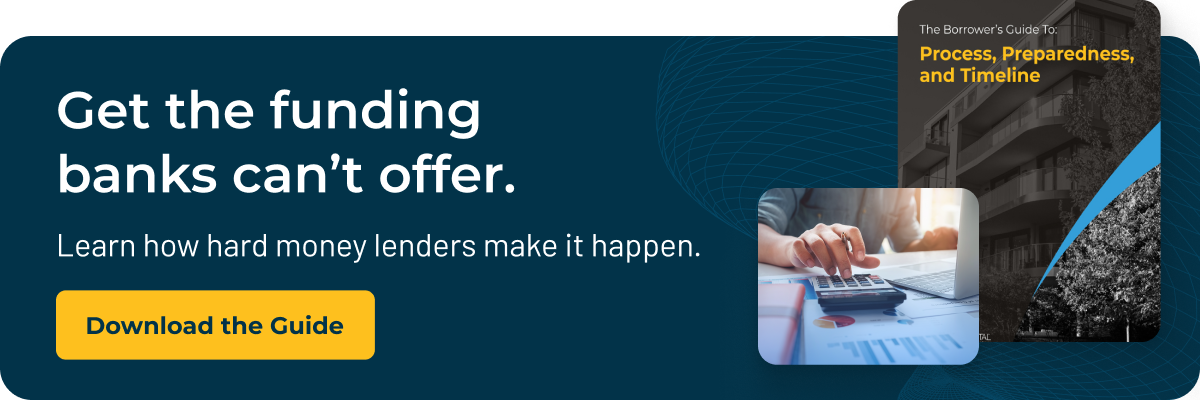Whether your business partner is a close friend or family member, or it’s strictly a business arrangement, there often comes a time when you and your partner seek different paths. A partner who wants to make an exit can have major consequences for your business venture, especially if there’s a disagreement. Regardless of the circumstances, it’s usually necessary to buy out the existing partner’s share of the business when one person decides to make an exit.
Business partnership buyouts, when done with proper care and due diligence, can go amicably and relatively quickly. However, sometimes these breakups can be messy, with financial or personal issues getting in the way of a clean buyout. If you purchased a building or office space as part of your business partnership, that can add a layer of complexity to any buyout.
Small business owners may not have the capital on hand to buy a partner out right away, which can drag out the process and have unintended consequences for the well-being of the business. To avoid this, many business owners seek external financing to complete their business partnership buyouts quickly, preserve professional relationships, and ensure that the health of the business isn’t affected by an extended transition period.
Keep It Friendly
If you’re considering buying a partner out, keep the relationship as amicable as possible. Even with the exit of a business partner, they’re as much a part of the buyout process because they were part of your business operations.
If you have a well-written partnership buyout agreement, the terms may be spelled out in that document, and it’s only a matter of having the capital to meet those requirements. However, if you don’t have provisions for a buyout already in place in your partnership agreement, you’ll have to negotiate the terms of the buyout, which is why you should try to remain friendly and professional. A contentious partner can make the process much more difficult and expensive. Be as open, transparent, and calm about the process as you can.
Hire Outside Experts
You don’t have to figure out everything on your own for a business partnership buyout. Countless resources exist, so rely on the expertise of others to help you through the process.
Get a business valuation.
One of the best ways to keep things smoothly moving forward with a buyout is to plan an independent business valuation. This will eliminate the guesswork about the real value of the business, reveal any liabilities that you may or may not be aware of, and ensure that the buyout offer is fair to everyone. Not only is this helpful for negotiating a buyout, but it also helps with developing strategies for resolving debt, structuring the buyout loan to provide for remodeling or equipment upgrades, and so on.
Retain legal counsel.
Consider hiring a lawyer, even if the partner buyout is on good terms. Every state has its own laws when it comes to business ownership and buyouts. Unexpected legal compliance issues can turn an amicable buyout sour and grind a contentious one to a halt overnight. This is why we recommend consulting with a lawyer who specializes in this area of the law. Find someone you both agree to, and comply with any recommendations they make.
Under positive conditions, a lawyer helps ensure that all paperwork is filed by the required deadlines and finalizes any terms still under negotiation. If your partner isn’t cooperative or communicative, a lawyer will be far better equipped to navigate the added legal complications. If you and your business partner purchased a piece of real estate for your company, the buyout will have to deal with both their share of the business and the property itself. In this case, you may want to look for a lawyer versed in local real estate law.
Aim for Expedience
Many business owners try to buy out partners through long-term repayment agreements or traditional financing options, but these all have significant complications. Ideally, every business owner who wants to buy out a partner’s share in their company would be able to do so with their own money. But this isn’t often isn’t an option, because few people have the capital available for a lump-sum buyout and negotiating a years-long payment schedule can be challenging.
The latter situation is complicated for a variety of reasons. If you choose to self-fund a buyout but do not have the capital to fully buy your partner out right away, your partner will essentially act as your lender, and collect on that loan—often with interest—over a predetermined period of time. Depending on the terms of your buyout, they may stay on as part of the business until you finish paying what is owed, and potentially continue to have a say in the decision-making and strategy.
Understand Your Financing Options
A long-term buyout solution is not ideal if relations are strained or if you disagree about what’s best for the business. Most business owners try to avoid this by using equity or debt financing to fund a partner buyout. Depending on your business and the nature of your partner buyout, one or both of these options can be viable, but they do come with some drawbacks worth considering.
Equity financing
With equity financing, you’re essentially selling your partner’s shares in the business to investors. This does remove your partner from the business, but you’re trading one partner for another—or sometimes, many others. If the intent of your partner buyout is to take full control of the business, this doesn’t necessarily fulfill that goal.
Debt funding buyouts through the SBA
Alternatively, many business owners choose debt funding to complete a buyout, taking out additional loans and accruing more debt in the process. This can be the financing solution for any buyout and puts the business firmly under your control, but it isn’t necessarily easy or quick.
Some business owners look to the Small Business Administration, specifically 7(a) loans, but these can be difficult to qualify for. The SBA requires good financials on the borrower’s part, and the borrower must provide a detailed strategy for ensuring the profitability of the business after the buyout. While it is relatively quick to apply for a 7(a) loan, the approval process can take months, during which time your buyout is in limbo.
Bank loans
If you are unable to qualify for a loan through the SBA, you could potentially turn to a bank for a loan. Unfortunately, most banks are reluctant to grant a loan for a buyout, and if you were turned down by the SBA, you may find similar difficulties here. From their perspective, you are taking on more debt while losing the stability provided by your former partner. There is little guarantee that the partner buyout will result in the profitability and success necessary to ensure you can pay them back.
Refinancing a property
Sometimes multiple business partners will invest in a piece of real estate in order to house their company. If some of these partners decide to exit the business in the future, you’ll have to deal with not only their share of the business but also the building itself. The remaining partners can fund the buyout by refinancing the property. Similar situations can happen with properties owned or inherited by multiple members of a given family when there’s a disagreement on what to do with the property.
Financing a Business Partner Buyout with Private Money
Because a partner buyout can be a time-sensitive situation, a hard money lender like Socotra Capital is the best choice to help you quickly finance the buyout. Our loans are not bound by the same restrictions that steer many banks away from financing partner buyouts. If you own property, you can likely get a hard money loan to buy out your business partner. The bridge loan approval process is fast so you can return your focus where it’s needed most: running your business.
In addition to financing the buyout, our loans can help you pay off any existing debts your business may have accrued over the course of the partnership or fund critical improvements to your business location. We’re ready to work with you to find the best solution for your business and ensure that you and your former partner can complete the buyout as quickly and painlessly as possible.
To learn more about how hard money loans work, read The Borrower’s Guide: Process, Preparedness, and Timeline.







